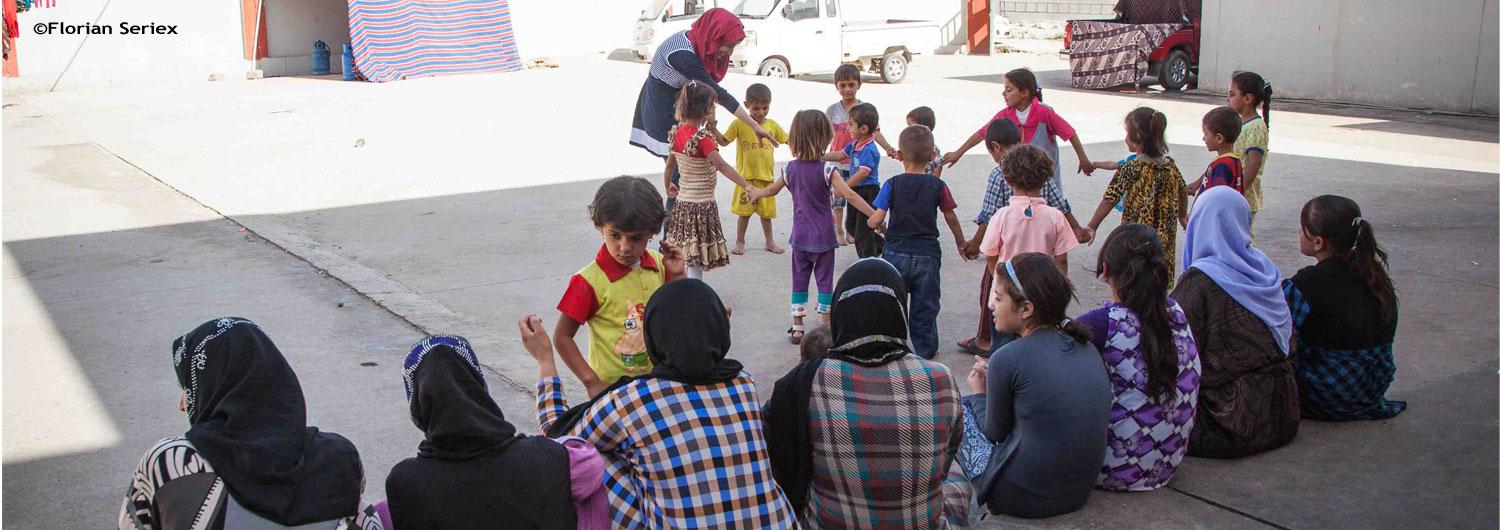News
Treating the invisible injuries of war
25/02/16

Psychosocial programs help refugees in Jordan, Lebanon, and Iraq overcome trauma
When it comes to delivering humanitarian assistance to victims of conflict, most people would list food, clean water, shelter, and healthcare services as the most urgent priorities. Until fairly recently, humanitarian organizations focused their efforts on meeting the most urgent physical survival needs of people affected by violence or disaster. But the humanitarian mandate to alleviate suffering should include mental health along with physical health. Trauma can be one of the most damaging—yet overlooked—health needs for populations affected by emergencies, especially children. In Jordan, Lebanon, and Iraq, Action Against Hunger has been working to help refugees and displaced families overcome trauma and heal.
Addressing the impact of conflict on children
Our emergency teams in Jordan, Lebanon, and Iraq identify people in need and assess their psychological welfare. Psychologists then develop and manage individual treatment protocols, recognizing the unique needs of each community and adapting our approach to respect their customs. Our teams have found that children, who make up more than half of the conflict-affected population in the Middle East, often develop regressive behaviors like bed-wetting, and can exhibit increased irritability and outbursts of anger.
Read more in: Treating the invisible injuries of war (Action Against Hunger USA)